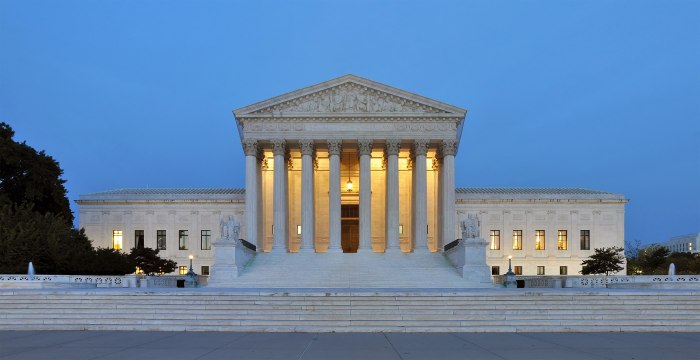Louisiana District Court Judge Nadine M. Ramsey granted a motion by the city of New Orleans for summary judgment in a challenge to its domestic partnership registry ordinance and its policy of giving health benefits to domestic partners of city employees.
Ramsey's January 15 ruling will undoubtedly be appealed.
Court rejects right-wing suit against partner health care, registry
The lawsuit was filed by the Alliance Defense Fund, an anti-gay litigation organization, on behalf of a group of New Orleans residents in 2003, in belated reaction to domestic partner advances from the late 1990s. In 1997, the city amended its health insurance program to extend benefits to municipal employees' domestic partners, and two years later the City Council enacted an ordinance creating the partnership registry.
After the lawsuit was filed, state voters approved an amendment to Louisiana's Constitution that bars same-sex marriages and any “legal status identical or substantially similar to that of marriage for unmarried individuals.”
In its original form, the lawsuit relied on a state constitutional prohibition against local governments passing laws “governing private or civil relationships” and an argument about the city's lack of legislative authority to provide employee domestic partnership benefits. After the marriage amendment was passed, the plaintiffs added the argument that providing any legal recognition or benefits for domestic partners violated the new constitutional provision as well.
The long delay in getting to this ruling on the merits resulted from the city's original strategy of having the case thrown out on technical grounds, arguing that the plaintiffs lack standing. Although that argument won in a district court and was upheld on intermediate appeal, the state Supreme Court ruled otherwise in 2006, finding that city taxpayers can challenge any unlawful spending of taxpayer money, and that the question of the registry was sufficiently intertwined with the benefits issue for the suit to go forward on both fronts.
In her brief opinion, Judge Ramsey ruled against the plaintiffs on all three legal theories. First, she disagreed with the plaintiffs' characterization that the New Orleans policies were an effort to “govern” private or civil relationships. Quoting the registry ordinance, she pointed out that it “simply 'establishes a mechanism for the public expression and documentation of the commitment reflected by the domestic partnership.'” The city did not seek to “govern” such relationships in any way, Ramsey found.
Second, the judge observed that New Orleans' home rule powers gave the City Council broad legislative authority. Under its municipal charter, “the City is permitted to pass any ordinance so long as it is not violative of the Louisiana Constitution,” she wrote. “This Court can find no authority to suggest that the extension of health care benefits to domestic partners of City employees is in any way in violation of the Louisiana Constitution.”
Indeed, Ramsey noted, a state statute specifically authorizes municipalities to “contract for any type of insurance protection for itself or its officers and employees,” which she interpreted to mean that “the City, as an employer, has the discretion to choose which benefits it will provide to its employees.”
Finally, the judge saw no merit to the claim based on the anti-marriage state constitutional amendment.
“The extension of health care benefits does not afford a legal status 'identical or substantially similar to that of marriage,'” Ramsey wrote, “nor does it in any way trample on any purported public policy favoring marriage over unmarried cohabitation. The City's decision to extend health care benefits to the domestic partners of City employees simply provides health insurance to a greater number of persons, without regard to marital status.”
Since Alliance Defense Fund is paying for the case, an appeal seems assured. When the suit was filed, the city invited Lambda Legal to intervene to represent the interests of individuals who are receiving health benefits under the city policy, and Lambda was afforded full participation in the case.


































